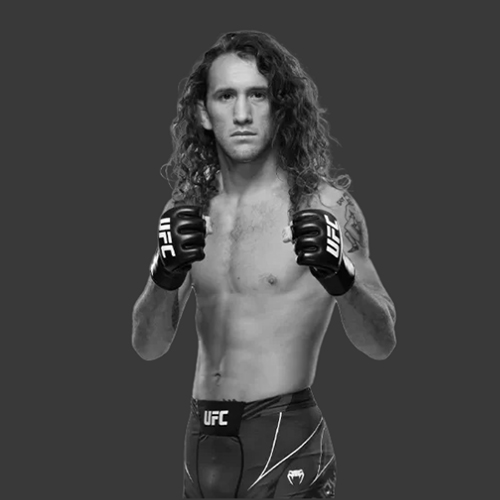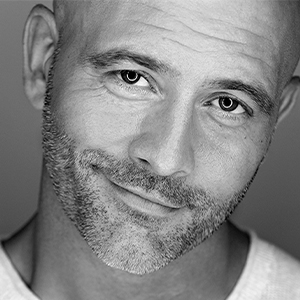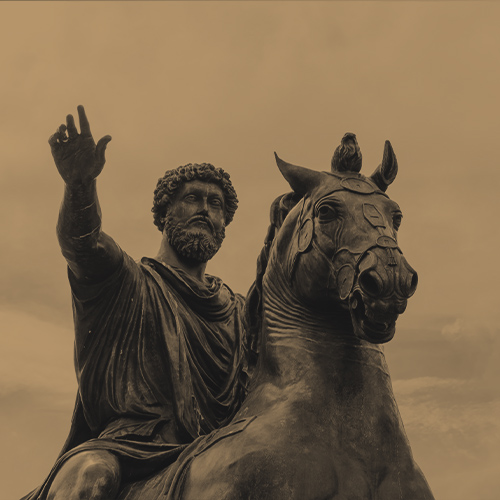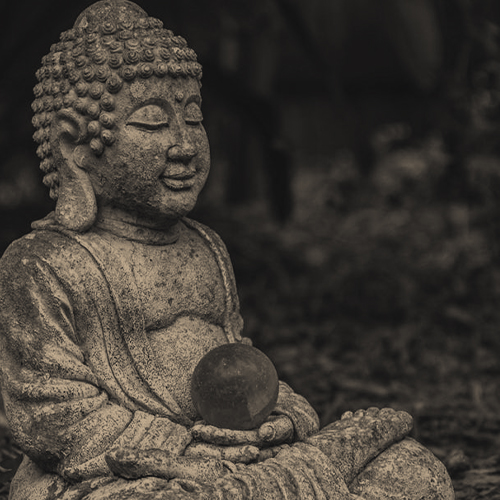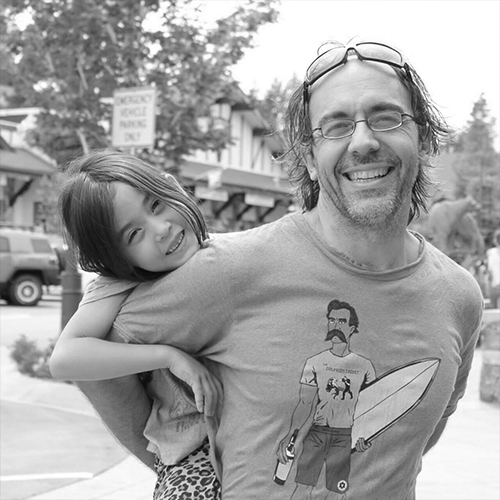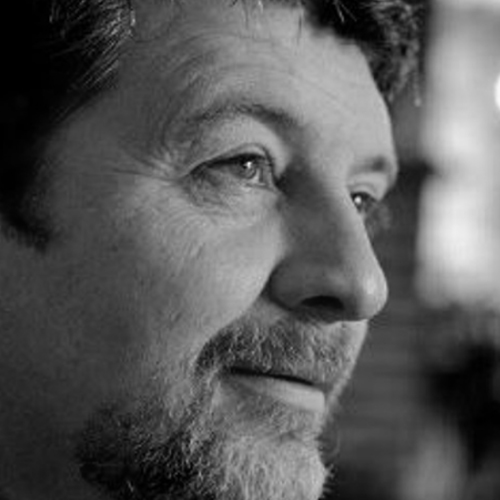When the lights come up and the energy is focused on you, have you done what it takes to succeed? This week Victor Henry shares the mindset preparation that comes with facing challenges and stepping into high stakes opportunities. Listen in as Victor and I discuss creating a routine of mental and physical preparation, the origins of MMA and how culture influences the way we treat others in and out of the ring, and why focusing on the fight in the moment is critical for success.
Victor “La Mangosta” Henry is an American professional mixed martial artist in the UFC bantamweight division. Called the “biggest underdog on the card” by Joe Rogan, Henry has 27 professional fights under his belt from locations around the globe and continues to build his reputation as a talented fighter in the UFC.
You can connect with Victor Henry via Instagram: https://www.instagram.com/victorhenrymma/
Episode Transcript
Victor La Magusta Henry was a four to one underdog in his USAW performance against Howie Barcelos, and his victory made a lot of buzz. And the aftermath actually made a big impact on Joe Rogan. Now, Henry made his USC promotional debut against Barcelos, and as the biggest betty underdog on the card, swept the judges scorecards in route to a unanimous decision win, January 22nd, Nantaheim, California. This marks Victor’s 27th professional fight, and that record was earned from fighting all over the globe.
01:31
Joe Rogan, who served as one of the UFC color commentators, reacted to the card as a whole, but used his 14 million followers on social media to give a huge shout out to Henry. And I’m quoting Joe Rogan now, quote, “‘I’m rewatching last night’s fights and one of the most impressive performances of the night was executed by Victor Henry. He was the biggest underdog on the fighting card, came in against a world-class veteran and put on a fucking show. The fight was everything that I love about the lighter weight classes, nonstop action and amazing technique.'”
02:01
Just an incredible fight. And before we get started, Victor has got a lot of sponsors. Victor is sponsored by the Gentleman’s Fight Club of Pearl brand by Tarrant Tactical Innovations, the ultimate weapons and accessories for competition, which you told me that they actually do a lot of stuff for the John Wick stuff, right? Yeah, they train a lot of actors and everything and athletes too, but in specific, they got Keanu Reeves ready for his role as John Wick. Dude, that’s sick. And then you got the Eric Poulsen connection there in choreography, right?
02:30
Well, unfortunately, not anymore. We don’t train with Eric Paulson anymore. But yeah, Eric Brown, when I was training over at CSW, I was training with Eric Brown also. And Eric Brown is responsible for helping with all the hand-to-hand combat stuff with Keanu Reeves. Dude, that’s awesome. They call it Gun Fu, right? Yeah, Gun Fu. I love that. And you’re also sponsored by Sespe Creek Distillery. And that’s an award winning distillery from the 805. And you told me that there was one that they just put out recently.
02:58
Yeah. So they’re in collaboration with Josh Barnett and they have the war bringer and the warm master whiskey, which is a winning a bunch boards and they’re quickly selling out, you know, everything they do a single batch. So the is not going to taste the same as the next one. So they’re, uh, they’re selling out really quick. As soon as it comes out, it’s basically gone. Yep. You better jump on it. And then his last sponsor is PhyTech fuel injection, the most advanced go to electric fuel injection system on the planet.
03:27
And I just want to get all that out there so that we could get the preamble. But thank you for being here.
03:56
Well, it started off when I graduated junior high, my mom was gonna toss me into a private school. Now, usually when people hear private school, they think hoity-toity schools. Well, this wasn’t that. This was a private school in the middle of Southgate where a lot of kids were getting kicked out of all the other schools. And the parents couldn’t afford the time to drop their kids off in the next county or whatever because their kids were being all screw ups. So instead they forked over whatever the tuition was a month.
04:26
to take them to this local school. So it was filled with a bunch of little rejects from other schools, you know, so a bunch of little ruffians. So I went over there and of course it’s a small, very small private school and all they had was basketball. Well, I’m not, I wasn’t into basketball. I mean, I’m five, seven now, so I was way shorter back then, of course. I didn’t even break a hundred pounds so I was 14 years old. Wow. So I was a small kid. So obviously being tall in basketball kind of helps. So that wasn’t my sport. So my mom goes, well, you’re not gonna just.
04:55
be a teenager and not do anything, especially with all the energy you got. So I was skateboarding at the time and, uh, so my mom hands me the paper. She was figure something out. I said, all right. I saw in the paper that, uh, there was a community center that was having type window classes two times a week for $25 a month. So I was like, all right. And it was just down the street. So I skated over there and I saw somebody get kicked in the head. And I was like, well, that’s something that I think I want to learn. So I signed up the next day and you know,
05:24
A few years later, I got my black belt, started going to the, and then after I got my black belt, I got out of my mom’s house for some dumb reasons, with dating a girl, a specific girl. And found my way into Jiu-Jitsu, found my way to the Gracie Academy, and from the Gracie Academy to Legends Mixed Martial Arts, and then from there, I found my way to CSW. And the name of your gym that you find out right now is? CMMA, Gardena. CMMM in Gardena. Yeah.
05:52
That’s an incredible journey to go from this kind of traditional stand-up art to one of the most eclectic kind of arts out there where it’s like we absorb what’s useful, this card was useless, I would have specifically our own. And that’s the beauty of martial arts. If we look at that philosophy, like you said, it, one, it kind of keeps our ego in check, but two, it keeps us hungry to be the student to say, what can I learn from this? We were saying before how maybe a traditional martial art, maybe doing a Hu-Bud or Panatukin or even some of the Kali stuff may not necessarily directly translate.
06:21
But conceptually, it absolutely can, right? Absolutely, you know, like there’s something to take from all martial arts, you know, you have to remember that every martial art comes from a different ethnic group, a different philosophy of life, a different necessity with whatever’s going on. Like for instance, you have Dambay, where they don’t even use the left hand. You know, they use the right hand. The right hand is the spear and the left hand is the shield. So you, and it’s crazy because of course, you know, they’ve modernized it into a sport.
06:52
of, you know, nowadays there’s nobody really fighting with shields and spears. But back when it was originally made, you were fighting with shields and spears. So as the years have progressed, they’ve kept their traditional martial art, which is Dombe, but they’ve modernized it into a sport. And now you I mean, look at all the Nigerian champions in the UFC right now. And they’re exciting to watch, you know, and they all got killer right hands. Go figure. Yeah. So
07:19
in studying all sorts of martial arts and studying just different historical groups and everything, you see that different groups needed a certain martial art in a certain way and a certain capacity to fight off or ward off other certain groups. For instance, in the military, the original round that the military was using, the original one was the nine millimeter, and then all of a sudden the US is in the Philippines and the Filipinos aren’t dropping to the nine millimeter because they have a tribal war
07:49
mentality. So here comes the 1911 and it’s shooting what 45 ACP. So now there’s a big around. So even in guns in gung in gun food, there’s a need when there’s a need, there’s a workaround, there’s always a way to go through things, you know, later on, you know, Filipino martial arts makes its way to the United States. And we have arts with cauli sticks, you know, we have
08:15
We have the karambit. We have all those things from Indonesia. And it’s crazy the way martial arts just, it embodies a certain culture, but then the culture of martial arts extends into just the ethnic cultures. And then those ethnic cultures, you find out why this martial art was this way and who they were fighting and what they were fighting against. And it seems to me like it’s a whole history in itself.
08:44
It absolutely isn’t just like to mention what you were talking about with the Marines in the Philippines. They had the 45s and then if you’ve ever heard the term leather neck, they will put some leather around their neck like you said, because even if you empty five rounds into this guy, he’s still coming at you with this big blade. He may still get to you if you don’t have the right placement. So it’s so important. And then even with like Filipino martial arts like C-lot, there’s a lot of pushing, a lot of moving. Well, C-lot was done in the jungles. It’s already muddy there.
09:13
Yeah. So they used to assume they’re going to fall down. So they will even start from the ground to get them in advantage. They don’t fall on their ass and lose their weapon or get caught off balance. And now when they knock their opponent down, now when they come up and they have that karambit, now they’re much more deadly. Yeah. And especially the targets, you know, it’s, it’s funny. And it’s messed up too. I see a lot of people making fun of like the McDojos where you’ll have one guy standing perfectly still. And then this other guy is dancing around his knees and he’s just doing a bunch of.
09:42
stuff with his hands and it’s like I understand that it doesn’t look like anything. It just looks like funky moves to people who don’t really know. But I’m also thinking yes you’re right in the sense that this slob looking body is doing something that really doesn’t look like it’d be effective. But it’s not necessarily the entirety of what he’s doing. He’s like doing this right now. It’s one or two moves that would actually come out in an actual situation. But again, you know, these are older martial arts that…
10:12
younger people or people getting into MMA or just things like that, they’re just completely disregarding because it’s all about, it’s all about wrestling and it’s all about boxing or Muay Thai. Even the traditional Taekwondo and the traditional Olympic style Taekwondo, there’s a lot to learn from that even though they’re not, it’s a different rule set, but if you learn that or even if you go and you start training with them, you’ll notice that man, this MMA stuff, even though it’s hard and it’s tough.
10:40
very specific arts like boxing man can you imagine a bag for an hour an hour and a half two hours and these guys are hitting doing bag work after they’re sparring after their pad work and then they go to bag work and then after that they run and then they sleep for a couple hours and they go do it again you know these specific arts they’re real tough especially when they’re uh isolated you know isolated into just one rule set it’s always been limitations that have helped the human nature to to expand things
11:09
Boxing wouldn’t be where boxing is if we didn’t as a society say you can only use your hands in this fight. That’s exactly it forces us to evolve it and as you mentioned before Martial arts it means warlike So if i’m trying to teach it to people I can’t kill every person that I teach. Oh see it works See it works. We have to create a sport version or we have to create a less lethal version because if I don’t then I can’t teach the rest of this army or the rest of the people that are defending these lands and even
11:37
I wrote an article on Black Belt Magazine a few years ago about Pradal Sarai. It was a Cambodian boxing. It was sort of the father of Muay Thai because Cambodia and Thailand and like all these places, they were the same place, but then the line would move after a war or whatever. But these were men that were literally walking down to this pit. They didn’t have a ring and they literally had a monk that had incense going as he went.
12:05
And it was actually a Zen, it was a burial ceremony and they had a casket next to the pit because guys were dying for this art because it was so much honor respected with it. But it was like, listen, when the French came over and they were looking at, they were like, listen we can’t let you guys just kill each other. So they had to what? They had to modernize it into a sport so that could survive. And then like you said, that all of a sudden now people are being influenced by the kick, the knee the clinch, I mean, your clinch work is sick, but.
12:33
that’s what they were really big on. So there was so much of this, like you said, the more that you understand about an art, it becomes something that is this cultural part of you. And we see that common thread that goes through all martial arts when it comes to this notion of being a warrior. There are a lot of fighters that had this idea that the world kind of revolves around them or the gym revolves around them and they want to be the prima donna. And they just want people to come over there and work with them. But the martial arts keeps us humble. It’s like there’s a rank system.
13:01
We have to kind of give back to other people. We teach this white builder. We spar with this new person to cultivate this skillset within them. And it’s not about you just being this bad-ass fighter who can bust people’s heads. Yeah. You know, like out of the 20 years that I’ve been doing martial arts, I’ve only had 27 fights, well, professional fights, and you want to assume what? Four weeks.
13:29
of your life is dedicated to that one fight. So whatever the math is on that, you know, that’s still leaves a lot of time outside of fight training. So one of the first things I did even after the fight is I made sure that I was like, you know what, even though Joe Rogan shared this on Instagram, even though like my Instagram account just jumped up 13,000 followers out for me was crazy. I was like, I still have to go to the gym. And the first thing I’m going to do is I’m gonna start picking up after people, you know,
13:59
Fighters are fighters. They leave their tape on the freaking on the floor or they’ll leave empty water bottles places or you know, whatever So I’m thinking okay. I can’t go back yet and start training because then Josh is gonna put my ass Yeah, he said he said take a couple weeks off because you’ve been in and out of fight camp You need to let your body recover. I was like, okay. Well, first of all, that’s not gonna happen I need to be in the gym because I need to just be in the environment being in the environment is so I Think you know, it’s funny because like people get injured. No, I’m just gonna stay at home
14:28
Like, no, like there’s things you can do. Like, yeah, you got to mess up. Like, I mean, those times were, there have been times where my legs are just beat up and sore and, you know, I can’t, but Josh said, Hey, you need to get your cardio somehow, go figure it out. So I was okay. So what I did is I sat on my butt and I did battle ropes, you know, or I’ll, yeah, I would just jump on the air, dying and use my arms only, you know? So there’s things you can do to make it happen. If you don’t want to do something, any excuse would do. But if you really do want to do something, you’ll figure out a way to do it. So.
14:58
I got to the gym and the first thing I thought of was like, Hey, I need to be of service to other people because I know in my head, I’m a human just like everybody else. And there is a, there is a way that it’s going to get to my head and I’m going to get, I’m going to be a little spoiled prima donna if I let it, you know, so, Oh no, I’m going to go to the gym and I got to make sure that I pick up after people. I, I set up the mop bucket and then I mop after everybody’s done, you know, when you are in fight camp, then yeah, everything’s kind of got to be about you. You got to get your rounds. You got to get.
15:27
You know, you got to make sure people aren’t doing something stupid with you. And, but again, that’s, that’s such a small blip or such a small timeframe in the grand scheme of your whole martial arts career, you know, and martial arts is not just about getting in there and fighting somebody. Sometimes strength isn’t about what you can do to somebody. Sometimes strength is how much you actually hold back and how much control and not deliver on to somebody. There’s been a lot. I mean, if you want to talk about.
15:57
How many Bruce Lee’s have been rejected out of a gym because of an idiot instructor? You know, there’s a lot of potentially great martial artists out there that just, you know, maybe they’re, I mean, yeah, I mean, the point of martial arts is to become mentally and physically strong and become a wiser person in general. But you don’t start that way, you know, and all of a sudden, you know, you got this hot head instructor who thinks he’s shit.
16:25
and a new student comes in and all of a sudden they can’t, they just don’t jive well with the instructor and then they martial arts for this one. Who could have been great?
16:36
It’s a shame, it’s a waste. And that’s, again, like you said, that culture of the martial arts that keeps us honest. Again, it’s easy, like you said, for a fighter sometimes to allow that mentality of it’s about me to project throughout his entire existence. But again, if you’re not finding there may be somebody else in a fight camp that needs your help, right? Somebody else that wants you to hold somebody else that wants you to give them some coaching, somebody else is like, Hey, can you put me through these rounds? And again, now the whole tribe is like feeding each other as opposed to it being just about
17:06
you know, the victory show, right? Yeah, absolutely. You know, like, I mean, after my fights, I’ve gone back to the gym because somebody else has got to fight, you know, about a week or two. And I need to do my best to study my teammates’ opponent so I can try to imitate them both physically, you know, cardio-wise and try to imitate the way they do things so my partner can, can train again to the best of their ability because.
17:33
Now that my fight is done doesn’t mean I take off and do nothing. I got teammates that need help. We fight alone in the cage, but we bring everybody with us, you know, all the training partners, all, whether it be drilling, whether it be live goes, whether it just be a conversation because you’re sitting down next to the punching bag, you got to be within the martial arts mindset of just being there and being able to, uh, being able to just to bounce the off of each other. Cause that’s how martial arts is spread. That’s exactly it. And there’s so many people.
18:03
They’re never going to have this experience. So I’m going to ask it from you. We’ve seen, I say, we, I’ve seen many guys that come into the gym and I know that you have two younger guys, physical specimens, maybe have some just natural skillset, maybe they’re, they’ve already had a wrestling background or a boxing background and they do well. And even in the gym before a fight or before a competition, they’re wiping the floor and ragdoll and everybody, right? But when they walk out.
18:31
when they’re walking out to the octagon, when they’re walking out to the square circle, when they walk out to the mat and the lights hit them, there’s something that catches them because they’re not prepared. They don’t understand how to deal with that adrenaline dump. Can you tell us what you’re thinking as you’re walking out to the octagon and how that may be different from a person who is less conditioned for such a situation? Yeah, I mean, first let me tell you a story. When I was then over at Legends Mixed Martial Arts.
18:56
I remember before I even had my very first smoker, which is a kickboxing fight, you know, you got a shin guards, big old gloves, headgear before I even had my first one, there was this guy that was training there and he was a, I think he was in college, but he was playing baseball in college. So he was a, he was a physical specimen, you know, and I had done Taekwondo before. So I thought my kicks were pretty good and everything, but Taekwondo and Muay Thai different animals because it’s different, different sports, different martial arts. So I remember this guy will whoop my ass.
19:26
Every time we would spar and I was like, I don’t, I’m thinking to myself, man, he’s going to go in there and he’s going to, he’s getting ready for his first fight, you know, his first smoker. I’m thinking, man, he’s going to go up there and he’s going to whoop some guys ass and the first thing is the exactly like you said, the lights hit him and I don’t know what the hell happened, but he starts getting his butt handed to him. And I’m thinking to myself, man, I want to fight, but if this guy who’s out there and he’s getting his butt whooped, I need to train twice as hard or I need to.
19:55
I need to just give up this endeavor altogether because there are some bad motherfuckers out there. Right. So then, you know, after the fight, he gets absolutely worked. I never see him at the gym again. And I’m like, well, that’s kind of weird, whatever. But you know, and then, you know, a little bit later, my coach goes, all right, we’re going to put you in a fight. And I’m just like, thinking about that, they get, man, I don’t know if I got what it takes, but screw it. Let’s go, let’s go fight anyways. And I go out there and it was just, maybe it was like,
20:25
60 to 100 people inside this little gym. And then I remember just going out there and thinking, well, I’m just gonna go fight this guy. There’s one constant in all of these fights. Someone’s gonna punch you in the face. It doesn’t matter how many, I mean, the attendance changes, the arrangement of what you fight changes. Sometimes it’s the cage, sometimes it’s a ring, sometimes it’s a pit, sometimes it’s an elevated surface. It’s all the same, it’s all, those all change, but the one constant is somebody’s face.
20:55
So going out there for this fight, it was pretty crazy because I’m thinking to myself, man, I’m hearing the music. There’s a physical buzz that’s going around, especially in American crowds, because everybody’s talking, drinking, cheering. There’s a physical buzz that you can actually feel on your skin and you’re thinking to yourself, man, this is, well, I gotta fight. But again, all those things change. Everything changes. The one constant is that you’re gonna go in there right now and you’re gonna fight somebody.
21:24
Somebody’s gonna try to punch your nose through your asshole. So that’s the one constant. So you gotta just, in my mind, I’m thinking, okay, I’ve just gotta focus on this fight. So then the curtain opens up, the lady’s going, all right, three, two, one. And there’s moments before moments before moments. From being in the locker room, just stretching and warming up, to being just behind that curtain, and you have your event coordinator counting down, three, two, one, you walk out to the walkout itself.
21:52
to now you’re in the cage and you’re waiting for your opponent to come in to Bruce buffer yelling at you to all of a sudden, ding, ding, ding. And you clear that and you close the distance between each other into the center of the cage and you start fighting. There’s moments on moments on moments. And in each moment you have to go in my mind, I’m thinking, all right, just, you know, hands up, this is the game plan. This is what we’re going to do. I’m not thinking about how many people there are. I’m not thinking about.
22:22
the stage, I’m not thinking about the crowd, I’m not thinking about anything. I’m just thinking of hands up, chin down. He’s, he’s pulling his jab back to his chest or he’s pulling his jab back really high. I flinch, you know, it’s, it’s gotta be a chess game in there. And every crowd is basically different, you know, so you get different things from different crowds, but how do you push that crowd out and focus on the task at hand? I was earlier about how, how martial arts has helped me.
22:51
through every endeavor in life. Even at the bar where I worked, I was working as a bouncer and then now I’m a bartender. This one job needs to get done. I need to change a keg or I need to do this. I got four people deep at the bar. Well, I was like, well, I can’t serve anybody without the actual drink that everybody’s gonna drink. So what’s the one thing that needs to change? I gotta go change that keg. So it’s just things like that where you take those lessons in martial arts and you apply it to life.
23:20
And you just, it’s just, it’s just over and over again. And so I get caught in life. Sometimes I’m like, I don’t know what I would do. So I try to translate it to the best of my ability into, okay, well, this is kind of like this in wrestling or in jujitsu or this is what I was boxing or whatever. So you try to, you translate it. And then once you translate it, you apply it to something else. So in short, to answer your question, I really don’t feel much, you know, you go out there emotionless and let’s see where the tide takes us. Yeah.
23:50
You’re a warrior. This is what you do every day. This is your, this is your office and you fought over the world. You fought in Japan, you fought in Russia. And like you say, I don’t know if people understand this, but when you’re on stage or when you’re walking onto the, into the cage, some of the people don’t want to see you win some of the people are rooting against you. And if you allow that energy to seep into you, it will shake your confidence. It’ll take your eye off the opponent. It’ll make you forget about why you’re there in the first place.
24:17
And that’s why, like you said, you had kind of have to just say, listen, I’m moving forward. And a lot of times it may be that first punch or that first kick that lands, whether it be you or him, or maybe that first shoot that you stuff. And now you’re like, okay, I’m in it. And now you’re in your environment. But for a lot of people, again, that walk, it doesn’t serve them. And now they’re already a step behind for you. You were like, okay, this is what we’ve been doing. This is what we train for. Bring the bell. Let’s go. Yeah. I mean, you’re right. There’s a lot of people that want to see you lose. I mean, that was a huge betting deficit that I had to overcome.
24:47
And, you know, of course, people are like, Oh, that doesn’t bother you. Not at all, because it doesn’t matter. The guy, my opponent still has to beat me just because he’s beating me on betting lines. We’re not in a betting fight. We’re in a physical fist fight, you know, so he still has to beat me. Yeah. That doesn’t matter to me. So of course, going into this fight, none of that matters. The only thing that matters is now we’re going to get in a fist fight. And I plan, I pull off like just because you’re
25:17
on paper better than me. And I was, I saw this one other guy where he said, striking honey bar cells, wrestling, honey bar cells, jujitsu, honey bar cells, cardio, Hunter. I was like, what do you think that I’m just some chump? Like what, I don’t understand. Like what advantage do you give me in any way? If you had to be honest, no, no, no, no. But it’s probably because like I said, people are UFC fans. They’re not MMA fans. And that’s fine. You know, I don’t.
25:47
fault people for that as long as they claim it. But if you’re going to be claiming yourself as an MMA journalist or a fight journalist or whatever, if you’re going to claim that, then you have to claim it all. And that means something outside of the top 15 in one organization. I tell these people, listen, it’s okay to be MMA fans or UFC fans because who doesn’t like pugilism?
26:15
You know, everybody watches some form of violence and a lot of these MMA journalists, they were saying, okay, well, how many of our cells has fought tougher people and he’s fought in the UFC. I say, okay, that’s your opinion. I think that X champions top, uh, you know, top 15 in the world training partners of the current champions and people, but who am I to know? I’m just the one to follow. And then just to, just to disregard me that, okay, well, whatever. That’s all. That’s on you guys.
26:46
But then of course, after the fight, I was like, yeah, I told y’all, yeah, I told y’all this is what was going to happen. But it was because what do you claim to be versus what you actually are? If you claim to be an MMA journalist, then be an MMA journalist. Follow more than just the UFC. I think the UFC has done a wonderful job of marketing MMA to the world because they have the financial backing for it, which is great. I think it’s wonderful because at the end of the day, more people are going to be MMA fans, which hopefully will spark more.
27:15
martial artists and more people of like mind that way. You know, one of the great things about wrestling or just martial arts in general is that it doesn’t matter how tall, skinny, big, no matter the melanin content of your, of your skin, it doesn’t matter what you are. The only thing that matters is how much time you spend in that gym. Perfecting your craft. Every person is born with some form of some form of gift.
27:45
You know, some people are taller, some people are longer. Some people are short, stocky, but they, for whatever reason, they got a great jab and you know, there’s some other people who are just on lanky and they got great knees and elbows. They couldn’t jab for shit, but once it comes to knees and elbows, they, they got it, you know, everybody’s got some form of skillset, there’s naturally going to pick up wrestling. I mean, there’s so much in martial arts, but everybody’s got a gift that they can apply in a fight or in a combat scenario.
28:16
So who am I? I’m just gonna show up and I’m just gonna whoop on somebody? No, I’m gonna try to help nurture these things out of the newer people. And I’m gonna help the more senior of people to me will help me develop and everything. The mat space, the circle, the ring, that is shared by everybody. And there is no political, there is no racial, and there is no ideological differences.
28:45
At the end of the day, what I say before, everybody’s going to punch somebody in the face. And if a person doesn’t give shit about how much you make or how long you’ve been there or what you’re entitled to or what your previous experience was, it cares about right now. This technique, are you getting better? Are you getting worse? There’s no in between. You’re either getting better at the technique or you’re getting worse. That was part one of my interview with UFC fighter, Victor Henry. You can hear part two of the interview on the next episode of Auction on Verba.
29:11
where Victor returns to discuss the journey to becoming, as Joe Rogan said, the biggest underdog on the card and the foundational lessons that he learned along the way to victory. We also discussed how to nurture the right skillset, being willing to step into chaos to be successful and the biggest misconception about fighters and why violence is not always the answer when facing adversity.
